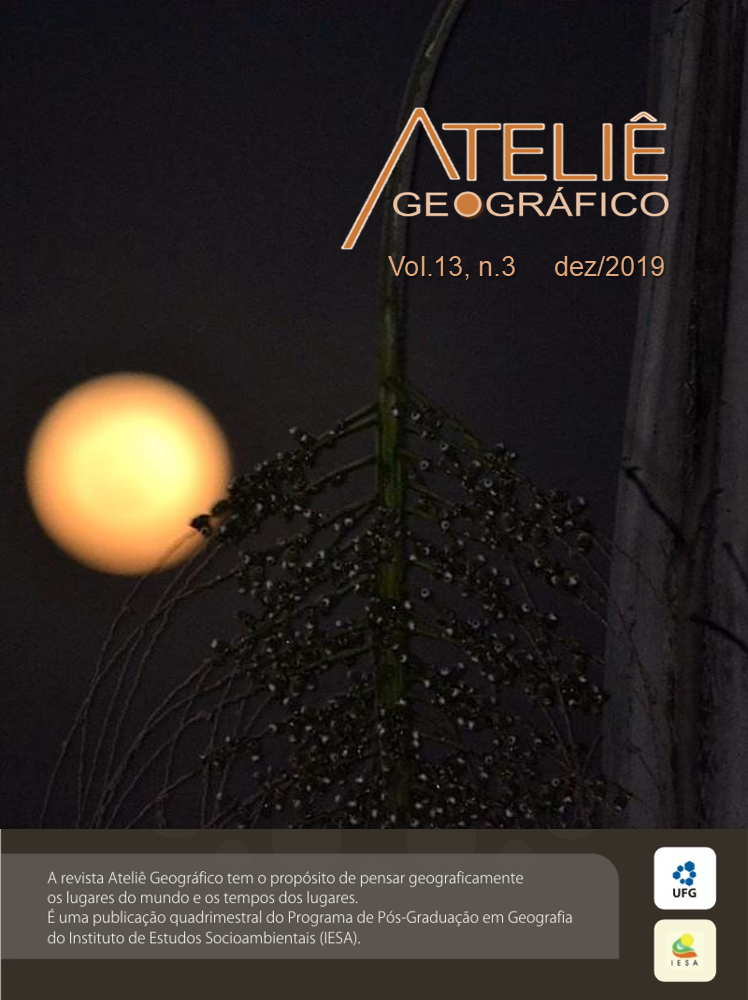The map in geography teaching: an analysis of the teaching work in Madrid (Spain) and in Goiânia (Brazil)
DOI:
https://doi.org/10.5216/ag.v13i3.60860Abstract
This text paper shows refers to the postdoctoral internship that had as its goal the analysis of how Geography teachers from Childhood to Higher Education deal with the map as cartographic language in their classes in Madrid (Spain) and in Goiânia (Brazil), from the perspective of contributing to the geographic education. With that purpose in mind, interviews were conducted with a reduced group of working teachers from different scholar levels. As a result, it was noticed that the map has been valued in these teachers’ Geography classes, however, mainly from the perspective of the spatial thought by Spanish teachers, whereas Brazilian teachers link the map to daily readings and practices. Yet, as these teachers’ academic training was heavily tied to Cartography in an Euclidian perspective, the work with maps revealed itself greatly associated with the teaching of cartographic subjects. It is expected to identify similarities and differences between these teachers’ practices with this study, as well as to better guide the work with the cartographic language in Geography classes using the obtained analyses.
Keywords: Map; Cartographic language; Geography teaching; Teachers’ academic training.
Downloads
Published
How to Cite
Issue
Section
License
Autores que publicam nesta revista concordam com os seguintes termos:- Autores mantém os direitos autorais e concedem à revista o direito de primeira publicação, com o trabalho simultaneamente licenciado sob a Licença Creative Commons Attribution que permite o compartilhamento do trabalho com reconhecimento da autoria e publicação inicial nesta revista.
- Os autores não serão remunerados pela publicação de trabalhos na Revista Ateliê Geográfico. Além disso, os conteúdos publicados são de inteira e exclusiva responsabilidade de seus autores, ainda que reservado aos editores o direito de proceder a ajustes textuais e de adequação às normas da publicação.
- Autores têm permissão e são estimulados a divulgar seu trabalho online (ex.: em repositórios institucionais ou na sua página pessoal), já que isso pode gerar alterações produtivas, bem como aumentar o impacto e a citação do trabalho publicado (Veja O Efeito do Acesso Livre).


